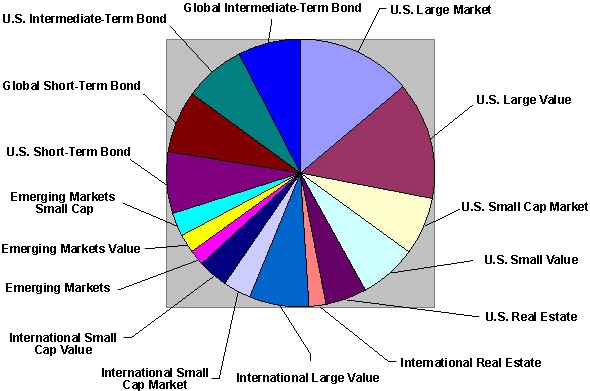Mutual Funds Or Stocks Which Is Better For You
Post on: 3 Июль, 2015 No Comment

Are mutual funds or stocks better for you? Depending on who you ask you will get different answers. In all fairness, stocks serve a different purpose and different types of investors than mutual funds and vice versa. Here’s a 4-step litmus test to help you discover which investment type is more appropriate for you:
Funds OR stocks: Which is right for you? There are four ways to find out. (Photo credit: hang_in_there)
1. Savings Phase – Where are you at in your savings phase? If you’re just starting out diligently saving in your 401(k) and/or Roth IRA (typically in your 20s – 30s) mutual funds offer the right solution and access to help you begin to build your retirement savings. With investment minimums of only $1,000 or less mutual funds offer easy access for beginner investors and some basic level of diversification. Stocks, on the other hand, are for you if have more investment experience under your belt (typically in your 40s-70s) because you can fine tune your portfolio strategy in ways you simply can’t with funds. This more sophisticated approach also comes with higher minimums than funds, generally minimums of at least $50,000 or more apply.
2. Tax Sensitivity – Do you want to have more control over your tax bill? Stocks offer superior tax efficiency because it’s up to you or your portfolio manager on when you take gains or losses (when your plan consists of a pro-active comprehensive tax & investment strategy). If you enlist the help of an portfolio manager their management fee may also be deductible on your tax return. If taxes aren’t a concern for you then mutual funds may be a better fit. Their management fees are not tax-deductible and there’s virtually no control on when and how much you pay in capital gains tax or when you should harvest your losses. The best example of this was in 2008 when your mutual funds lost money yet you had to pay a capital gains tax bill. How does this happen? During a negative year in the markets mutual fund managers have a greater propensity to sell off their winners so they lose less than their competition, which triggers a capital gains tax bill to you, all the while the value of your fund still plummets.

3. Hands Off or Control Freak – Do you tend to “set it and forget it” or do you like to have more understanding or involvement in your portfolio? Mutual funds offer you an “auto-pilot” approach to your investments because you can invest your money in a time capsule of sorts and come back years later to review the results. While this may not be the most responsible way to look after your life savings, some investors prefer this approach because they just don’t want to feel burdened with any of the details. Mutual funds, however, do not offer you a “peek under the hood” to see what you’re really invested in, the amount of risk that you’re actually taking, or how much you’re truly paying in fees…there’s very little transparency in mutual funds. They are considered a black box investment. True transparency, if it’s important to you, may be found in individually managed stock portfolios. This approach may be for you if you want more control and a better understanding of what’s going on with your money.
4. Subway or Limo – Do you like taking city transport or a limo? Managed stock portfolios offer you the financial equivalent to limousine service because they offer professional navigation that can be custom-tailored to your unique situation and goals including tax mitigation, prudent risk management, tactical investment strategies, and income goals. In essence, you get to decide when you get on and off. Mutual funds are fine for you if you prefer the subway because you get on and off with everyone else, in other words there generally isn’t any ability to custom-tailor the fund(s) for you or your goals for income or tax savings. Some advisors try to overcome this financial mass transit approach by hand selecting a portfolio of mutual funds. Unfortunately, this approach is fraught with problems because of the additional layers of fees, which can easily run 3-5% per year and the lack of transparency of how the funds are actually investing your money.
Disclosure: Rob Russell offers advisory services through Centum Capital Advisors LLC an independent RIA














